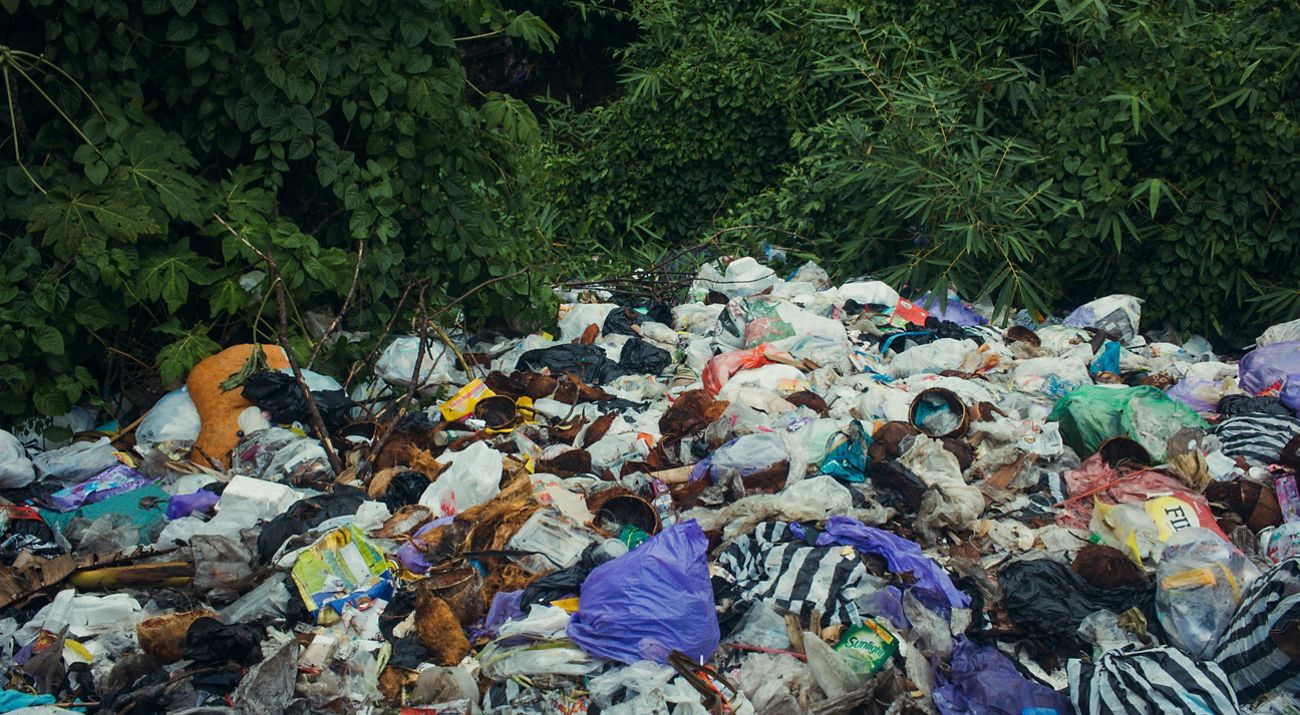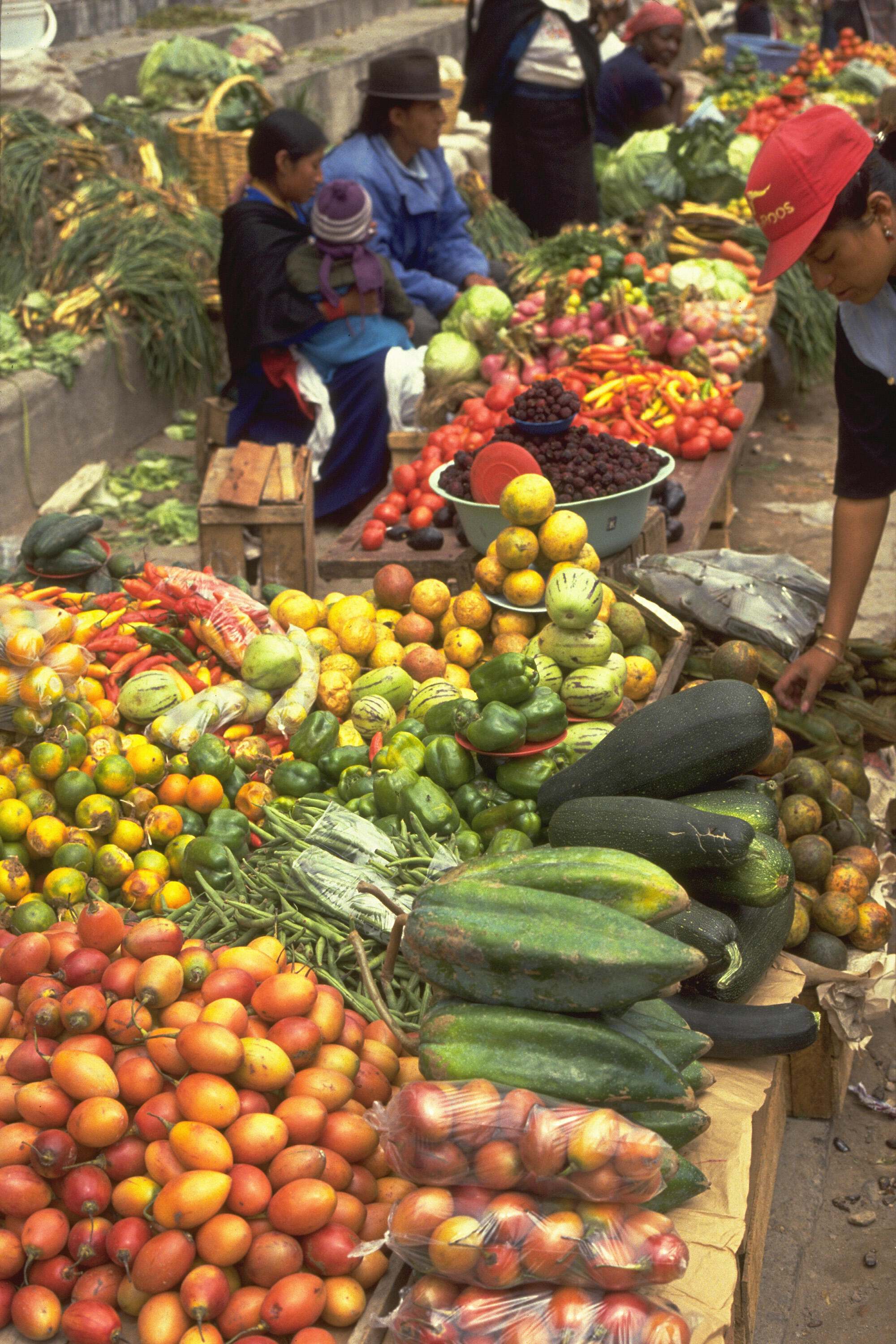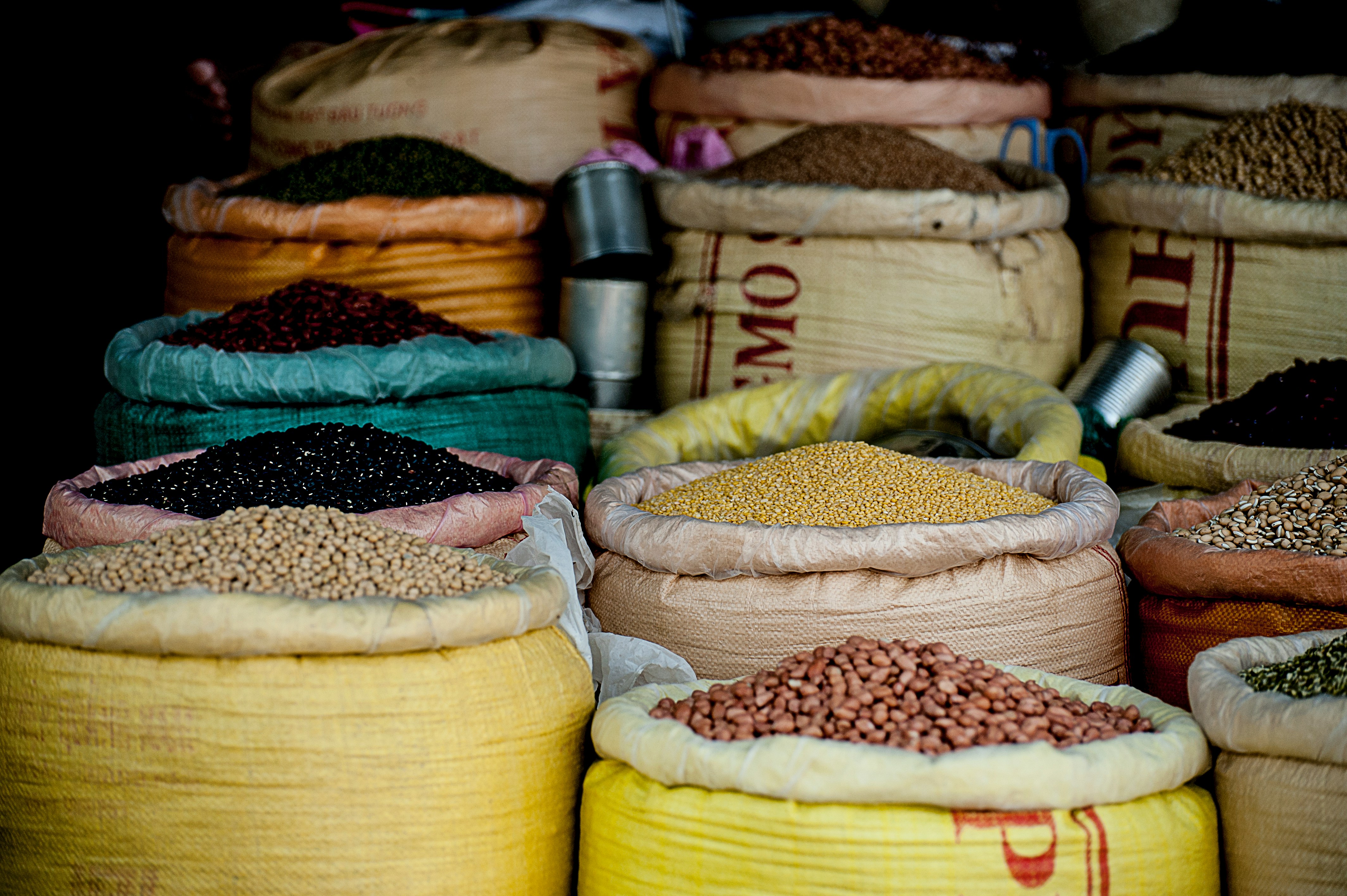Eight Ways to Reduce Waste
Learn how to take small eco-friendly actions that can lead to large positive changes in your community.
Reviewed by: Patrick Jurney, Plastics Project Director at The Nature Conservancy
Before we talk trash, a quick note: As a planet, we must act now to halt catastrophic climate change and biodiversity loss. And as an individual, is there anything you can do? The answer is a resounding "YES"!
We Can’t Save Nature Without You
Join our monthly email list for conservation news, updates & local opportunities.
While we need action at the scale of companies and governments, our everyday decisions can also hold significant power. Every action we take matters, and the more we bring our friends and family along, the more positive change we can make.
So let’s not waste any more time. Did you know that across the globe, people produce an average of 1.6 pounds of trash per day? And that across North America, that average is three times more—roughly 4.9 pounds of garbage? We can all take steps to reduce our waste and help the environment. Explore our tips below.
Curious About Your Carbon Footprint?
Use our interactive calculator to measure your personal carbon footprint and discover actionable steps to reduce it.
1. Reduce Single-Use Plastics
Plastic production is a significant and growing contributor to climate change, and microplastics endanger nature and human health alike. But what are we to do when so many essential consumer items are bundled in and born out of this hard-to-recycle material? First, don’t despair—then, stand with TNC and others in calling on world leaders to give consumers better options than the plastic industry. Use our tips below to get started in your home and community.
-
Reusable water bottles, tumblers, bags, straws and utensils are all popular reusable options. Some local shops even offer discounts when you spare them the cost of providing these items! To help you remember your kit, try writing “KIT” at the top of your shopping list. Alternatively, keep a few bags near your front door for easy access, or stash them in your car in case you leave home without them.
-
Plastic is notoriously hard to recycle. Before you toss that to-go container in the recycling bin, make sure to check your local recycling guidelines to see what your municipality can recycle. For many municipalities, only the number 1 and 2 can be recycled—3-7 are generally not recyclable! “Wish-cycling”—putting non-recyclable items in the recycling bin—can be more harmful than simply throwing them away.
-
So much of the single-use plastic we consume ends up in the rivers, parks and places we love in our own communities. Team up with likeminded allies in your city who are working eliminate plastic where you live.
2. Say “Not So Fast” to Fast Fashion
Fast fashion relies on the rapid production of clothing, demands vast amounts of natural resources and is often made from synthetic materials like polyester, which release microplastics. These microplastics, invisible to the naked eye, are toxic and pose a major threat to the environment. During clothing manufacturing, microfibers and plastics are released and estimates indicate that textile production is on track to triple by 2050. Fast fashion also promotes a throwaway culture, where clothes are quickly discarded after a few uses, leading to massive textile waste. Millions of tons of discarded clothes end up in landfills, taking hundreds of years to decompose and releasing harmful greenhouse gases and toxins.
-
Purchasing wisely might mean not purchasing at all. The best way to decrease consumption is to buy only when necessary, and choose items fashioned with sustainability in mind. Consider buying from local artisans who often create garments by hand, using far fewer resources than large manufacturing companies. Alternatively, choose to support companies that practice ethical manufacturing. These companies focus on creating durable, long-lasting clothes while ensuring fair labor practices and minimizing environmental impact.
-
- Before you go purchase something new, consider buying a “pre-loved” item—a great cost-saver, too! This could mean visiting local thrift and consignment stores or looking for deals on items through local online marketplaces. By purchasing secondhand items, you’ll support local communities while preventing items from ending up in landfills.
- Instead of purchasing new clothes for special occasions like weddings or festivals, consider looking into the growing alternative of renting clothing.
-
- Repairing and upcycling your clothing shifts the focus from disposable trends to valuing and maintaining what you already own. This mindset helps reduce the environmental impact associated with the production and disposal of fast fashion items. By either repairing small damages like tears, loose buttons, or broken zippers yourself or taking them to a local expert, you can significantly extend the lifespan of your garments.
- Upcycling involves creatively transforming old or worn-out clothes into new, stylish items that allow you to express and develop a personal style. This not only gives your wardrobe a unique touch, making your fashion more meaningful but also keeps textiles out of landfills. Every piece you upcycle is one less item contributing to the massive amounts of textile waste.
-
- When washing your clothes try to wait for a full load will reduce friction between clothes and minimize microfiber release and opt to use cold water settings which can reduce the amount of microfibers that shed from your clothes.
- Whenever possible, air-dry or line-dry your clothing. Electric and gas dryers can wear down the materials in your clothes much faster than other methods. Plus, avoiding the dryer can help you reduce your carbon and microfiber emissions as each cycle in the dryer releases more microfibers into the environment.
3. Make Sustainable Purchases
In addition to making more sustainable decisions around your clothing purchases, you can also make sustainable choices for your other needs.
4. Reduce Your Food Waste
Globally, around 931 million tonnes of food is wasted each year. In the US alone, approximately 60 million tons of food is wasted annually, equating to nearly 40% of the entire US food supply. When this waste ends up in landfills, it contributes to greenhouse gas emissions that accelerate climate change. Learn how to build a sustainable diet with the tips below.
-
Plan your meals ahead of time to purchase exactly what you need. Instead of shopping without a plan, make a list of meals and recipes you’d like to prepare and buy only the necessary ingredients for each. Aim to cook and serve the correct number of portions for the right number of people you are feeding.
-
- Opting for plant-based options can significantly reduce water pollution and lower individual carbon footprints. Plant-based diets generate lower greenhouse gas emissions when compared to meat-based diets. You don’t need to change your entire diet overnight, small steps have an impact! Each meatless meal saves about 133 gallons of water. Give “Meatless Monday” a try or cook a plant-based meal for yourself, friends, and family once a week.
- Additionally, opting for lower-carbon foods can make a huge difference. Switching from beef to bison, beef to chicken, or dairy milk to an alternative milk can significantly reduce your carbon footprint. When you do choose meat or fish, look for sustainable producers, especially those employing regenerative farming and aquaculture practices
-
If you purchase or prepare more than you need, consider freezing it for later—or even sharing leftovers with a neighbor! Frozen meals make for great time-saving options during busy days. If you have a surplus of vegetables, try dehydrating or pickling them to increase their shelf life. You can even get creative by experimenting with fruit purees or jams. Save your vegetable scraps in your freezer and utilize them to make great homemade broths for soups or tasty bases for meals.
-
- Did you know that up to 25% of the items in your trash could be composted in your house? Fruit and vegetable scraps, eggshells, coffee grounds, grass clippings, and leaves are all compostable. Composting offers a valuable return on your investment of time and effort. Depending on the conditions, you could have compost ready to use in your garden in 3 to 12 months. This can save you money on fertilizers and, if you grow your own vegetables, you might see improved yields. The organic matter in compost also acts like a sponge, absorbing more water and potentially reducing the need to water your plants as much, saving you both money and time.
- If you live in a city without a backyard, you may still be able to compost! Look into community composting or local composting organizations. Many urban areas offer curbside composting collection for a monthly fee or have drop-off locations for residential food scraps. Some community gardens also accept compost material donations.
5. Address Wastewater
Sewage pollution threatens biodiversity, especially in the ocean. While the environmental impact is significant, transformational solutions exist!
-
If we aim to shift our perspective on waste and move away from a "flush it and forget it" mentality, we can start recognizing the impact of our actions. Instead of polluting our wastewater with harmful chemicals and objects, we can view it as a valuable resource. Our wastewater can be used as fertilizer to grow crops, as fuel and electricity to power our lives, and, once treated, even as drinking water.
-
Conserving water in our daily activities is crucial, especially in drought-prone areas. Simple changes can make a big difference. When washing dishes, fill the sink or use a basin instead of letting the water run continuously. Turn off the tap while brushing your teeth and use a cup to rinse. Taking shorter showers and installing water-saving showerheads can also help. Avoid letting faucets run unnecessarily and fix any leaks promptly. If available, opt for water-conserving toilets and dual-flush systems to further reduce water usage. Additionally, adopting the "if it's yellow, let it mellow" approach can reduce the number of toilet flushes. By incorporating these practices, we can significantly reduce our water consumption and help conserve this vital resource.
-
Around the world, our waterways have become dumping grounds for nutrients like phosphorus and nitrogen, leading to coastal erosion, habitat loss, dead zones, and other negative impacts. If using fertilizers on your property or gardens, try organic products or mulching, which is excellent for suppressing weeds. By opting for natural solutions for weeds and pests, you can help keep harmful chemicals out of local waterways and global oceans.
-
If you're starting a garden or selecting plants for your home, consider choosing native species. Native plants are indigenous to your area, making them well-adapted to the local climate and requiring less water and fertilizer. They will thrive better than their non-native counterparts and look prettier too.
6. Go Digital
Reducing your paper waste by switching from printed materials to digital formats can significantly reduce your carbon emissions. While digital devices do consume energy, the overall energy usage is much lower compared to the entire lifecycle of printed materials.
-
Producing and delivering printed materials consume a lot of resources, including water and energy. Digital formats eliminate the need for paper, ink, and physical distribution, which significantly lowers resource consumption. Many companies and organizations offer digital subscriptions. By reading the latest news digitally, you can drastically cut down on carbon dioxide emissions. For example, receiving the New York Times digitally instead of in print can reduce annual CO2 emissions from about 270 kg to just 5 kg per reader.
-
If shopping somewhere that offers the option, select email receipts instead of printed receipts. Not only will this save resources, but you will not need to worry about losing your receipt if you need it to make a return.
-
There are numerous companies that allow you opt out of their marketing mailings. Check out www.ecocycle.org/junkmail who provide steps and resources for unsubscribing yourself from unwanted mailers and advertising mailing. If you get an unwanted weekly packet of grocery store circulars in your mailbox, talk to your mail carrier and they will stop delivering it.
7. Talk Trash
Talking trash (literally) can save the planet! Your casual conservations about waste can be a huge game changer for our planet. When we talk about our carbon footprints and the impact of our daily habits—especially at the community scale and beyond—we start to see the bigger picture. When you share these small victories with friends and family, you can spark a ripple effect, inspiring others to make eco-friendly choices and even pushing for bigger changes in our communities.
Quote: Katharine Hayhoe

So, in a nutshell, when people ask me what they should do, I say: Do something, anything, but then talk about it… to change the system we have to use our voice.
8. Challenge Leaders to Do Better
Challenging leaders to improve their approach to waste management can make a significant difference by sparking accountability and innovation. When leaders are pushed to set higher standards, they are more likely to implement effective policies and invest in sustainable technologies. By holding leaders accountable, we can drive systemic changes that lead to more efficient resource use, reduced pollution, and a healthier planet for future generations.
-
When communities back laws that promote recycling initiatives, restoring lands and waters and reducing plastic pollution, such as legislation that helps advance UNEP’s international agreement to end plastic pollution, it encourages everyone to adopt greener habits. These laws can also push businesses to minimize waste and invest in sustainable practices. By rallying behind local and federal initiatives, we can create cleaner, healthier environments and set a positive example for others to follow.
-
Advocate for policies that increase affordability, access, and political participation for women, people of color and marginalized groups. By supporting these policies, we can ensure that everyone has a voice in environmental decision-making, leading to more inclusive and effective waste reduction strategies. By empowering diverse communities to participate in sustainability efforts, we can drive innovative solutions and foster a collective commitment to reducing waste and combating climate change.
-
- Learning how waste works in your community is a powerful step towards waste reduction and combating climate change. By understanding local waste management systems, you can identify areas for improvement and advocate for better practices. Knowledge about what can be recycled, composted, or safely disposed of helps you make informed choices that reduce landfill waste and lower greenhouse gas emissions. Additionally, being aware of community initiatives and resources allows you to participate in or even start programs that promote sustainability.
- Similarly, learning where your water comes from and understanding the threats it faces is crucial. Knowing the source of your water and the challenges it encounters, such as pollution or overuse, empowers you to support conservation efforts and advocate for policies that protect this vital resource. By being informed, you can make choices that contribute to water sustainability and help mitigate the impacts of climate change. Educating yourself and others creates a ripple effect, inspiring collective action towards a cleaner, greener future.
Make Transformative Change Possible
We depend on nature, and nature depends on those of us who care enough to stand up for it.







